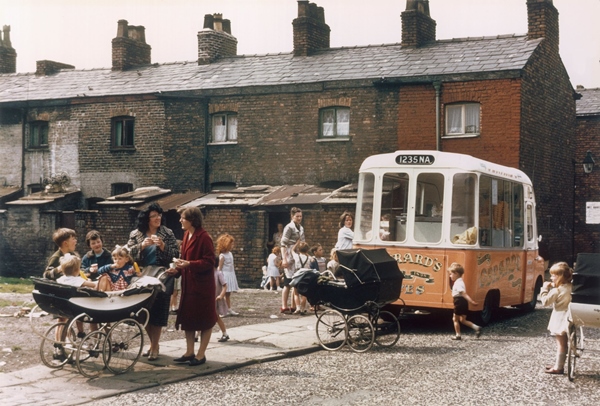 |
| 'Athena', fantasy art by Cynthia Sheppard |
First off, in order to deconstruct national sovereignty you need to tone down national identity. Then amalgamate national pride and patriotism with fascism and racism, which has been going on in France and elsewhere stealthily for the last 35 years. This is key to undermining the strength of a nation. Once national pride has been cleverly associated with fascism, it is put down, and the orchestrated erosion of national values triggers an open-door policy for imports (goods, services and investments, hence cash-flow). The same applies to people (mass immigration), ethics, views and politics that get unified under a fake right/ left, right/ wrong, rich/ poor, black/ white paradigm. Alongside this, in order to construct a European unity, you need to deconstruct unity at its cellular level (family unity, race unity, national unity, etc.).
For European unity to exist under the globalist model, expect no elevation of spirits and values and quality of life. Expect no flourishing prospects in terms of wealth and prosperity, education, employment, trade, industry or philosophy. Expect the exact opposite. Any sensible individual capable of reflecting upon current affairs, will have realised by now that each of the countries that make up Europe is in serious trouble. I acquiesce to this with all my while, having lived in the thick of the 'Union' all of my life, and long enough to realise that things are not adding up in favour of growth, but in favour of ungrowth. We Europeans live its absurdities with every breath we take. You will therefore have to excuse our dulling joie de vivre...
 |
| 'Momentum' by ibid. |
Distractions might take the unguarded off course, as for instance with the Anti-Brexit millennials who took to the streets of Britain on the aftermath of the referendum berating the 'old white people' that they wish would die, including - I imagine - their grandparents? But let's not be fazed; Paul Joseph Watson got it debunked for us in less time than it takes for a pop song to play.
Socialism, otherwise known as the Liberal left, the Democrats - or in more gauche terms as Tony Blair's New Labour - have made Europe their hotbed. And wherever socialism goes, ungrowth follows, all under this forced collectivism and communitarianism, multi-culturalism and other '-isms' and chasms that the individual is forced to surrender to... Here are a few examples:-
- Private liberties are being eroded.
- Political correctness paralyses free speech and makes us all potential suspects; it prevents politicians and other people in the public eye from expressing themselves without having to justify a word in lengthy ways.
- Burdening through over-taxation, over-bureaucratic nonsense, over-politicisation of public and private life with our puppet governments at work dismantling the democratic values of the Republic, so we are falling each day further down into state-controlled economy, which itself is at the mercy of global elites like the divine (deviant) George Soros.
- Biased media and institutions bought out by the corporate elite.
- The over-interference of the state into our everyday lives through all sorts of crazy legislation is meant to break our spirits and especially spirit of enterprise and financial independence.
- Debt-ridden nations, directly or indirectly selling off their 'family jewels'. (Examples in France: Toulouse airport, PSG football club, Alstom Energy, Peugeot cars, Hôtel de Crillon (Paris), Gevrey-Chambertin château and vineyard). Our heritage is being sold off!
- Meanwhile rampant unemployment, with our shipyards, foundries and traditional manufacturing industries relocated to the Far East.
- Open-border policy for a tsunami of unregulated uncontrolled migration that pours into every nook and cranny of Europe, tipping the balance further for costly unproductivity to replace ROI productivity to channel passive consumerism!
- Wahey, it looks like we are truly being snookered!
 |
| 'Libra' by ibid. |
The European Union is a socio-economic lab, a model in the making that is being used to be carbon-copied to other select parts of the world, namely Western economies, in order to collapse them and therefore rewrite history.
What is happening to Europe is a cautionary tale for the USA. Other there, you need look no further than your current President as a living exemple busy undoing the moral values and work ethics of the working classes in order to feed the Welfare State, tentacular federal agency aid programmes and an increasing federal policing of regular tax-paying citizens, through sophisticated centralised surveillance systems (by whichever invasion of privacy they might operate under, down to smart meters and biotechs) and other ways of interference. At this point, it is offensive to turn a blind eye to what is really going on in the West right now.
"The goal of socialism is communism." - Vladimir Lenin
"Socialism is the philosophy of failure, the creed of ignorance, and the gospel of envy. Its inherent virtue is the equal sharing of misery." - Winston Churchill
"Shattering the myth that poverty is the fault of the poor and a generous benefit system, [...] show that the blame lies with the massive social and economic upheaval that has shifted power from the workforce to corporations and swelled the ranks of the working poor, a group increasingly at the mercy of low-pay, zero-hour contracts and downward social mobility." - Breadline Britain: The Rise of Mass Poverty (review)
Further Resources:
- Getting Used to Less on Agenda 21, a 4-part series by La Baguette Magique
- European Unemployment Statistics by Eurostat, the statistical office of the EU
- The British government's official EU Referendum portal (details the implications of leaving the EU)
- The EU: Economically and Morally Perverse, by Hans-Hermann Hoppe, via LewRockwell
- How George Soros single-handedly Created the European Refugee Crisis - and Why by David Galland of Garret/ Galland Research
- (16-Aug-2016 Update) Soros Unleashed, a portal of hacked George Soros files via DC Leaks, providing an 'eye-opening' insight into the activities of Soros' Open Society Foundations and their direct implication in the mass-migration programme that is compromising the West
- UN Migration Envoy Believes EU Should 'Undermine' National Homogeneity by Breitbart News
- (16-Aug-2016 Update) The West Must Fall Before World Government Can Be Established by Infowars
- Leftist Agenda by Open Borders
- The Open Borders Lobby and the Nation's Security After 9/11 by David Horowitz, via FrontPage Mag
- Europeans Fear Wave of Refugees Will Mean More Terrorism, Fewer Jobs by Pew Research Center
- More Chinese Investment in Europe - Challenges and Opportunities by Merics
- European 'No Go' Zones: Fact or Fiction? Part 1: France and Part 2: Britain by Gatestone Intitute
- [French article] Un seul des 12 palaces parisiens est encore... français by Challenges (only one out of Paris' 12 luxury palace hotels is still... French-owned)
- Hello, goodbye! Welcome to Sweden by Angry Foreigner and Goodbye Sweden by The Sweden Report.









